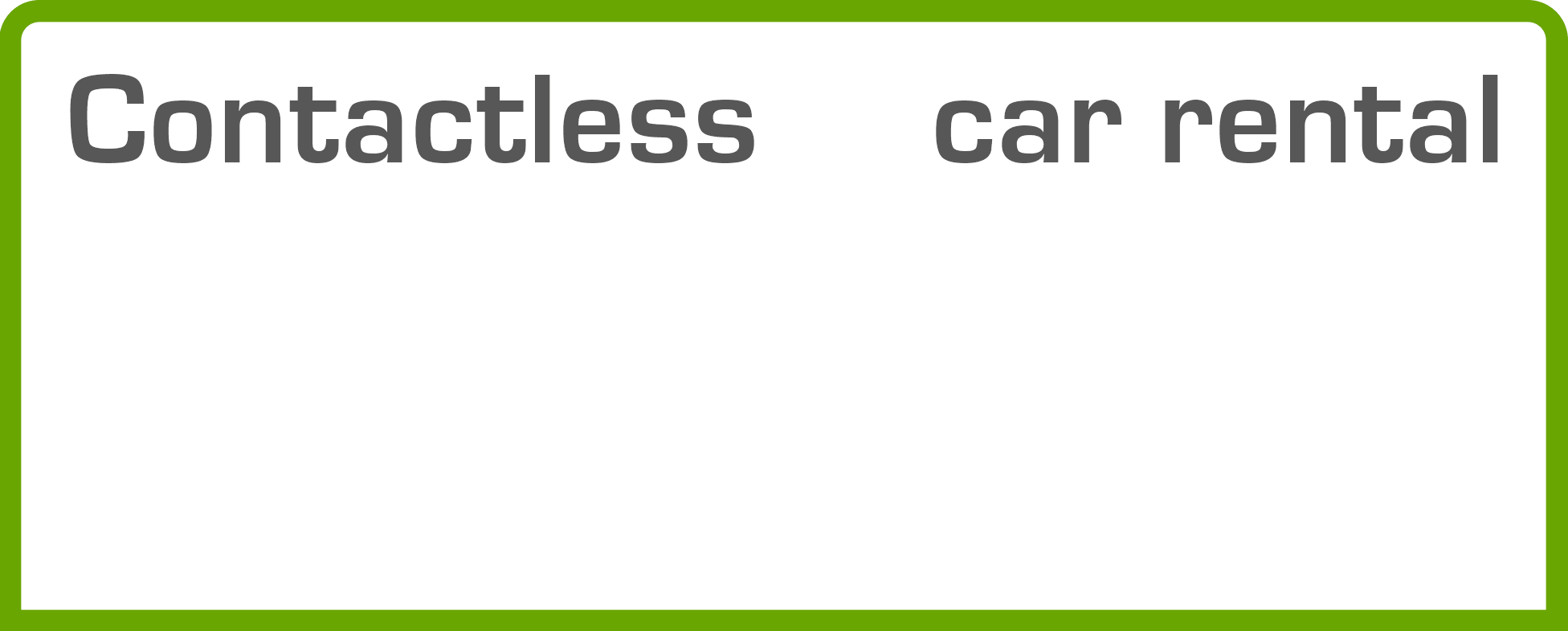Can I use my debit card?
Release Date:

If you are a regular hirer, you will often see during the booking process or on your booking voucher that as well as providing two forms of identification including your valid driving licence, that you are also required to present a credit card in the driver’s name.
Providing a valid credit card in the driver’s name is a fairly standard requirement across most vehicle rental companies. So, why a credit card and not a debit card?
The reason is quite simple. When you hire a vehicle, you are hiring an asset worth a considerable amount of money (often between €15,000 and €40,000) and also taking on the liability of driving and securing the vehicle.
The majority of rental companies provide comprehensive insurance coverage when hiring a vehicle but ask their customers to provide a deposit covering the agreed applicable excess / deductible.
The rental company will ask to pre-authorise the credit card in the driver’s name for the amount of the agreed excess and/or deductible, so in the event that the vehicle is involved in any form of accident, the rental company can claim the agreed pre-authorised amount from the credit card provider, either to cover or contribute towards the associated loss.
The reason debit cards are not accepted is that the rental company cannot pre-authorise a debit card and therefore cannot secure the excess / deductible amount against the debit card. If the process was attempted, the amount would be physically debited (as a cash sale) and then a refund would have to be issued at the end of the hire incurring transaction costs for the rental company.
In addition, due to the liability of hiring a vehicle, the hire company would also partially rely on the fact that when an individual has been awarded a credit card, they have a reasonable or good credit standing which provides an extra level of security for the hire company.
Insurance excess / deductibles are usually between €1000 and €2000. Most hire companies offer the customer the opportunity to either reduce or completely waiver the insurance excess for a modest daily charge.
In the event that the customer selects to reduce their excess to zero, a full security deposit (pre-authorisation against a credit card) would not be required and therefore if the hirer did not have a credit card, the hire company concerned may allow the hire to commence.
It is important that you fully read and understand the terms and conditions of hire before you arrive at the car rental location. Always remember that as a minimum you will have to present a form of photographic ID (typically a passport or country identification card) and a valid credit card in the driver’s name.
Also don’t forget your driving licence – it may sound obvious, but you would be amazed how many individuals arrive at a rental company without their driving licence or present a licence that is out of date. In the case of UK licences, you may also be required to supply a DVLA check code which allows the rental company to check that the licence is valid and does not have any disqualifications or endorsements recorded.
In some cases you will also have to provide further proof of address including items such as utility bills.
Once again, hiring a car is not as simple as most people would like it to be. You are taking responsibility for a valuable asset and you have to provide documentation that demonstrates that you are who you state you are, prove that you are legally entitled to drive, and provide a guarantee through pre-authorisation that you are able to cover any post-hire charges including the agreed insurance excess, traffic violations, etc.
Always read the full terms and conditions before you get to the rental station.





